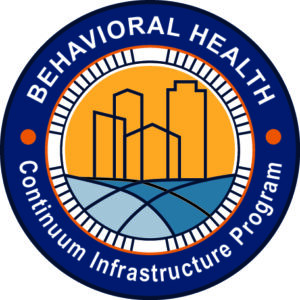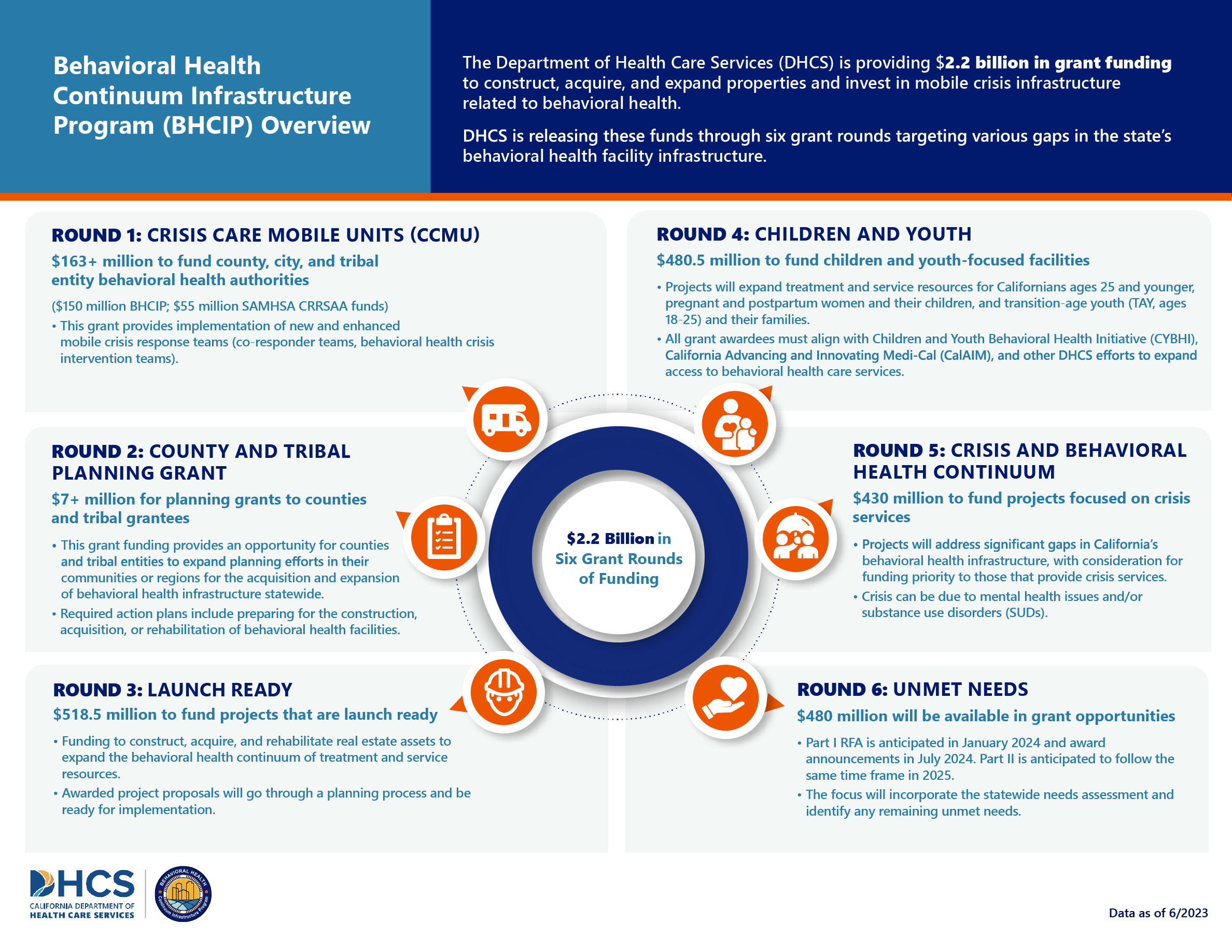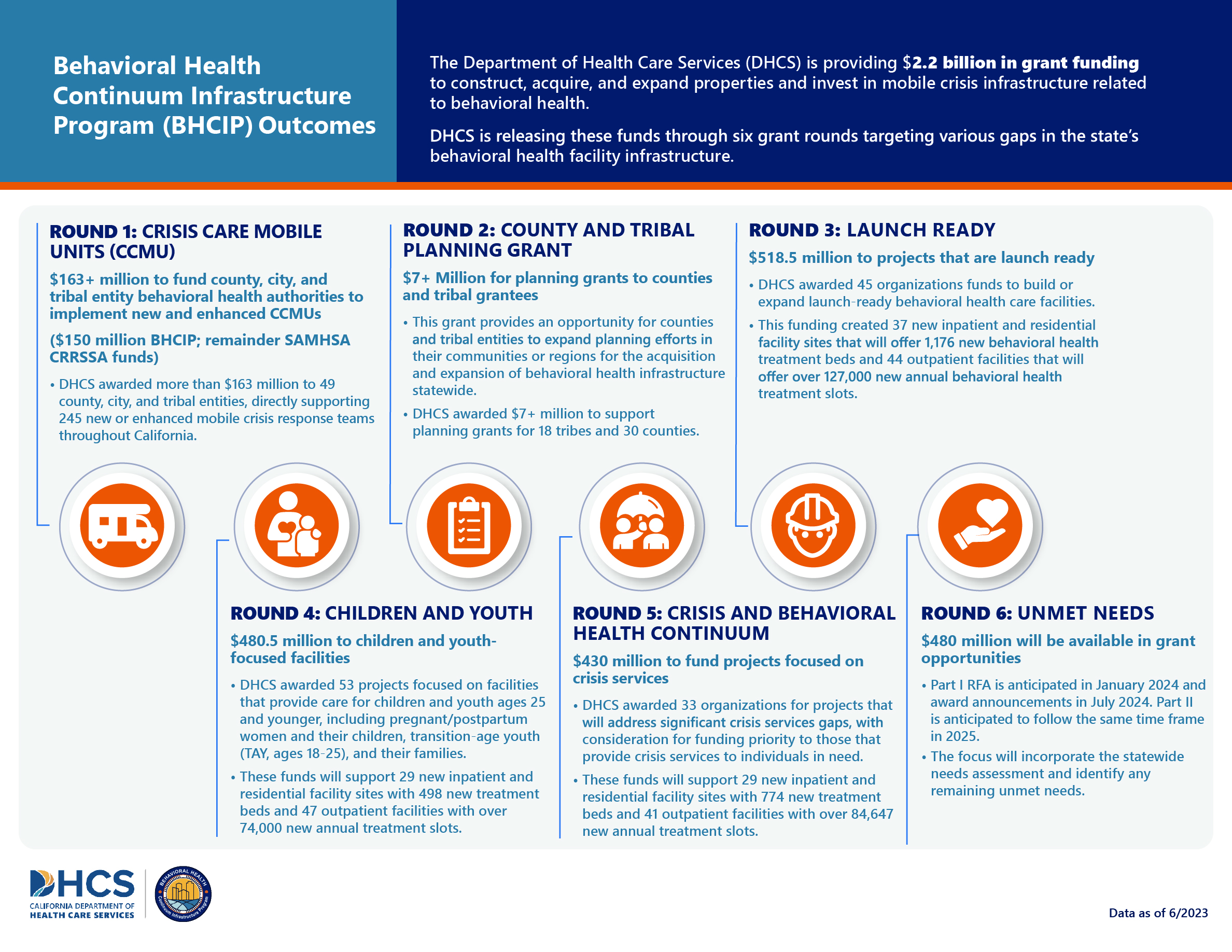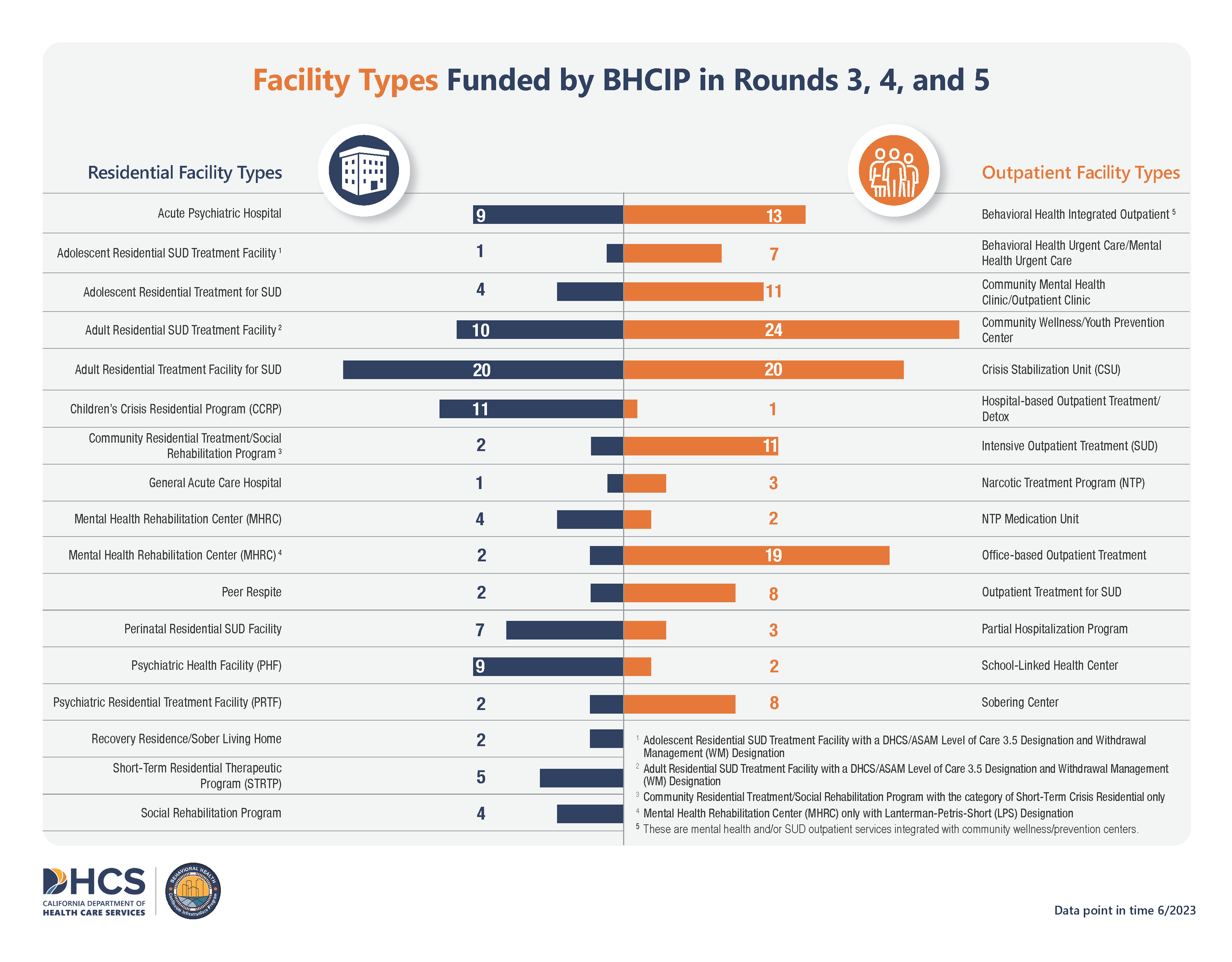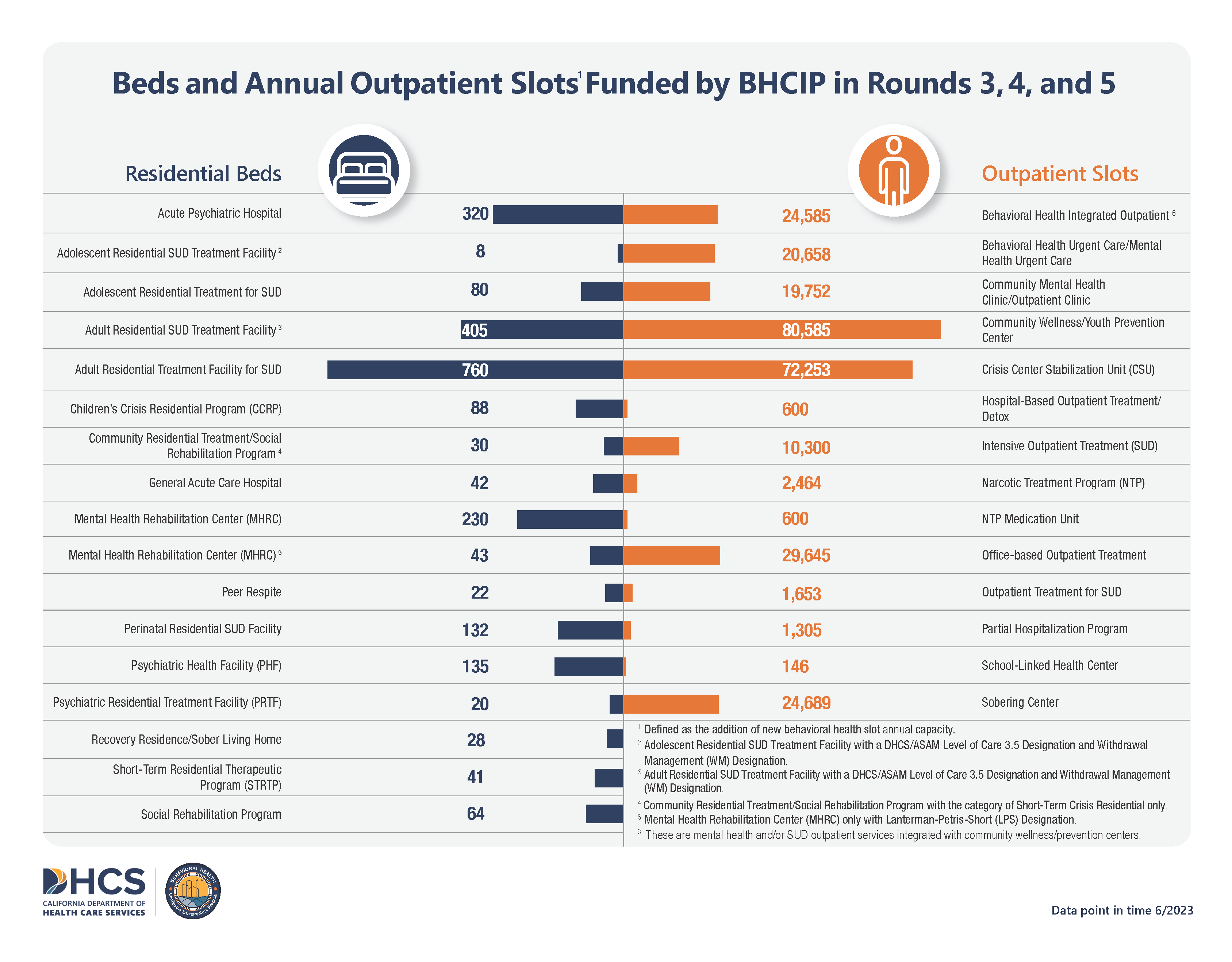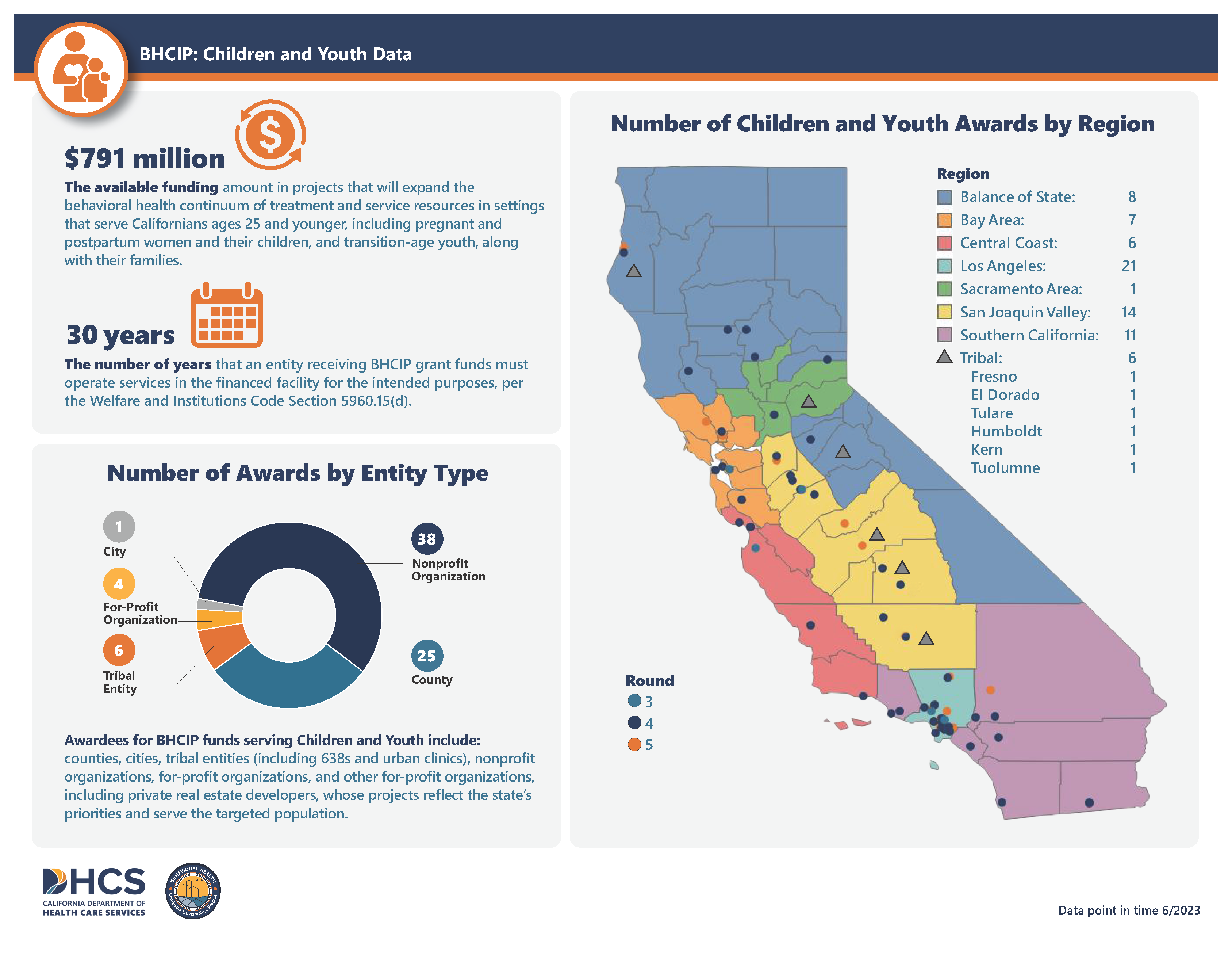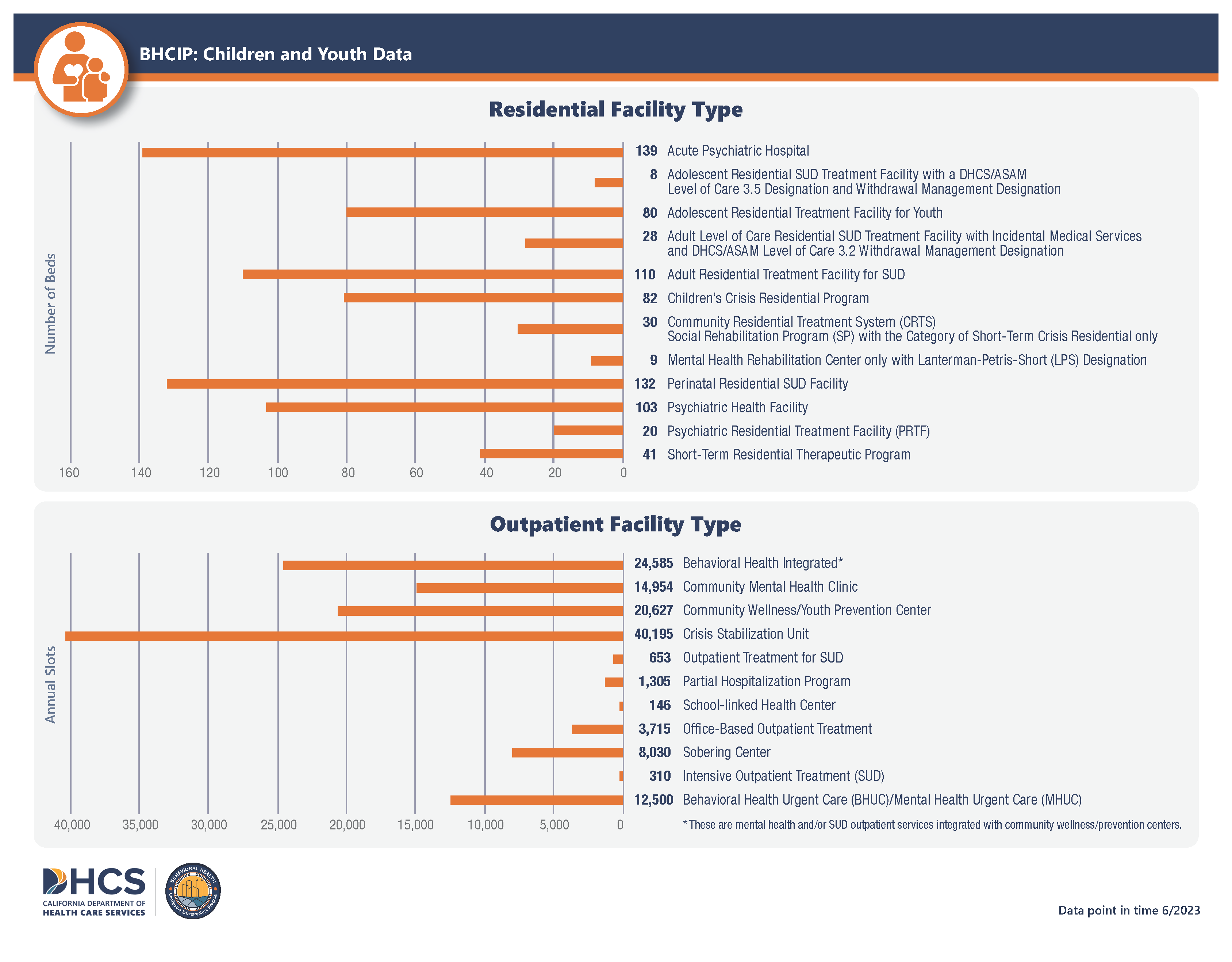UPDATE March 2024: California voters passed Proposition 1, a two-bill package to include: Behavioral Health Services Act (Senate Bill 326) and the Behavioral Health Infrastructure Bond Act (BHIBA) (Assembly Bill 531).
The BHIBA portion is a $6.38B general obligation bond to develop an array of behavioral health treatment, residential care settings, and supportive housing to help provide appropriate care facilities for Californians experiencing mental health conditions and substance use disorders. A portion of the bond funding will be accessible to the Department of Health Care Services (DHCS) to make Behavioral Health Continuum Infrastructure Program (BHCIP) grants available to eligible entities.
DHCS is in the process of developing policy guidance for the portion of bond funding specific to the BHCIP. If you are not already signed up on BHCIP’s listserv, please do so now to receive relevant announcements and updates regarding BHCIP and BHIBA. The BHCIP website will continue to be updated as information becomes available. In addition, DHCS is hosting a Behavioral Health Infrastructure Bond Act of 2024 BHCIP Rounds 7 and 8: Unmet Needs Public Listening Session on Friday, April 19, 2024, from 2:00 to 3:00 p.m. This session is open to the public, including city, county, tribal entities, and nonprofit and for-profit organizations. Please register using the button below.
For additional information on the Behavioral Health Transformation (BHT) occurring statewide, please see the following links:
Behavioral Health Continuum Infrastructure Program
DHCS was authorized through 2021 legislation to establish BHCIP and award $2.2 billion to construct, acquire, and expand properties and invest in mobile crisis infrastructure related to behavioral health. In partnership with Advocates for Human Potential, Inc. (AHP), DHCS is releasing these funds through six grant rounds targeting various gaps in the state’s behavioral health facility infrastructure.
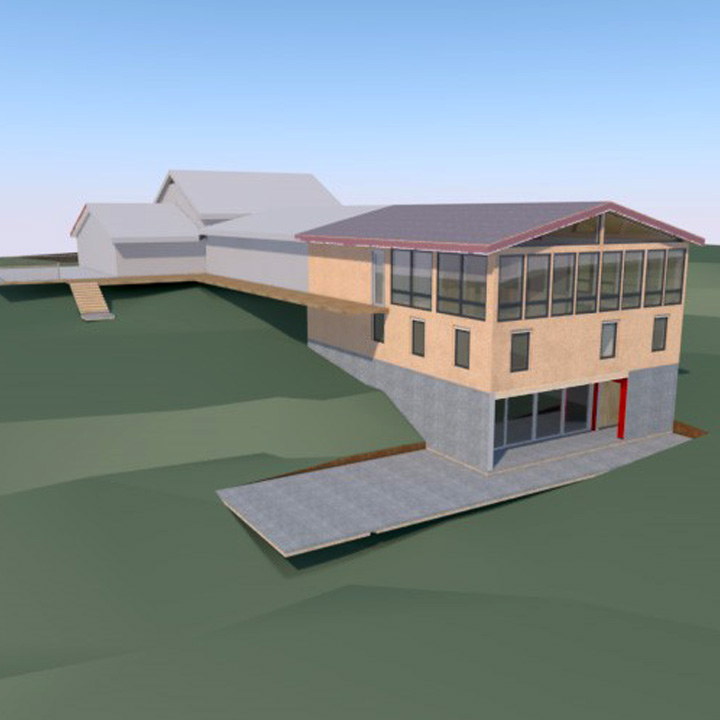
Program Highlights
Round 2: Community Mental Health Clinic
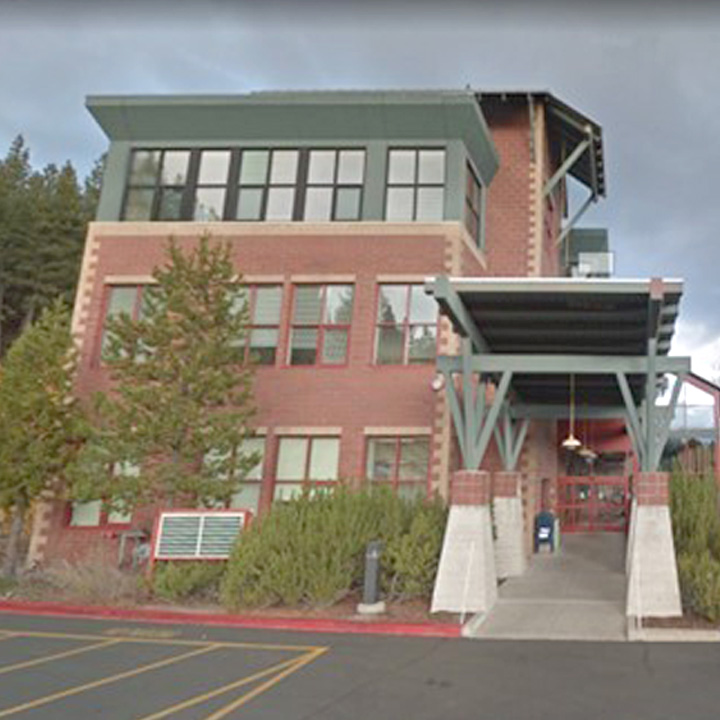
Program Highlights
Round 3: Tahoe Forest Hospital District
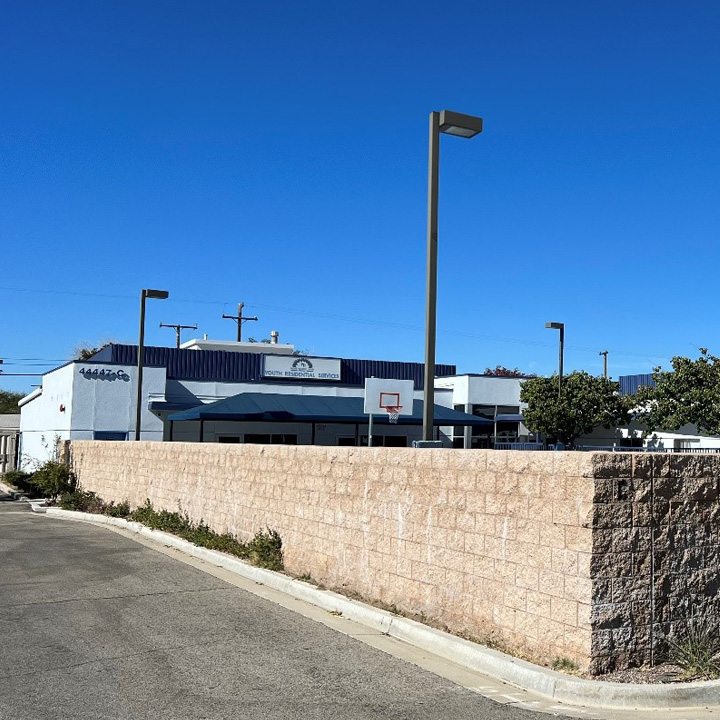
Program Highlights
Round 4: Tarzana Treatment Centers, Inc.
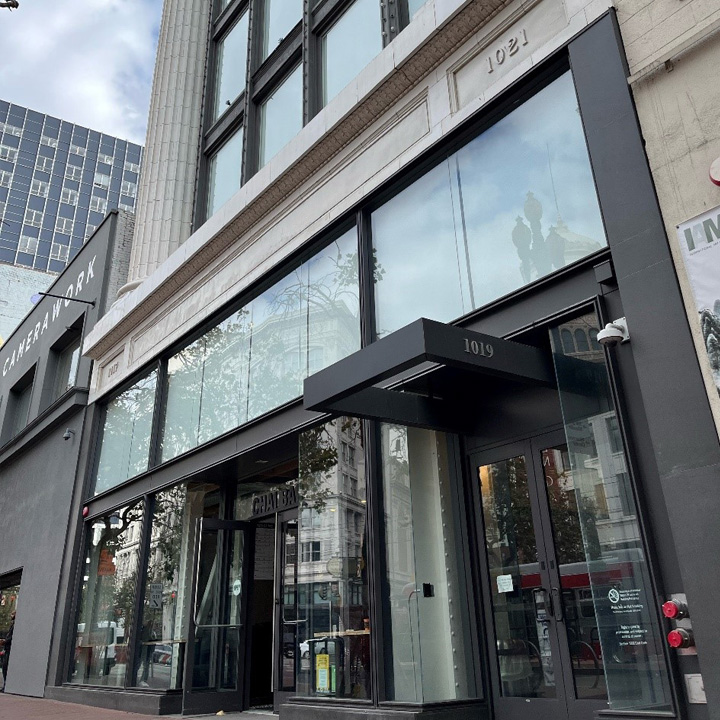
Program Highlights
Round 5: City and County of San Francisco
About
Improving California’s Infrastructure
CalHHS infrastructure funding, alongside significant new state and federal investments in homelessness, healthcare delivery reform, and the social safety net, will address historic gaps in the behavioral health and long-term care continuum to meet growing demand for services and supports across the lifespan.
These investments will ensure care can be provided in the least restrictive settings by creating a wide range of options including outpatient alternatives, urgent care, peer respite, wellness centers, and social rehabilitation models. A variety of care placements can provide a vital off-ramp from intensive behavioral health service settings and transition individuals, including the most vulnerable and those experiencing homelessness, to community living. Investing in adult and senior care facilities will divert SSI/SSP recipients from homelessness as a key part of the state’s strategic multi-agency approach to increase housing options for seniors and people with disabilities.
Behavioral Health Infrastructure
To view additional infographics, click on this image
Real Estate Development TA Resource Library
Click here to view technical assistance resources for grantees and applicants.
This includes videos and guides relating to real estate planning and development.
Community Care Expansion (CCE) Program
The Community Care Expansion (CCE) program was established by Assembly Bill (AB) 172 (Chapter 696, of Statutes 2021)and provides funding for acquisition, construction, and rehabilitation to preserve and expand adult and senior care facilities that serve Social Security Income (SSI) applicants and recipients, including those who are homeless or at risk of homelessness. More information about the CCE program can be found here.
